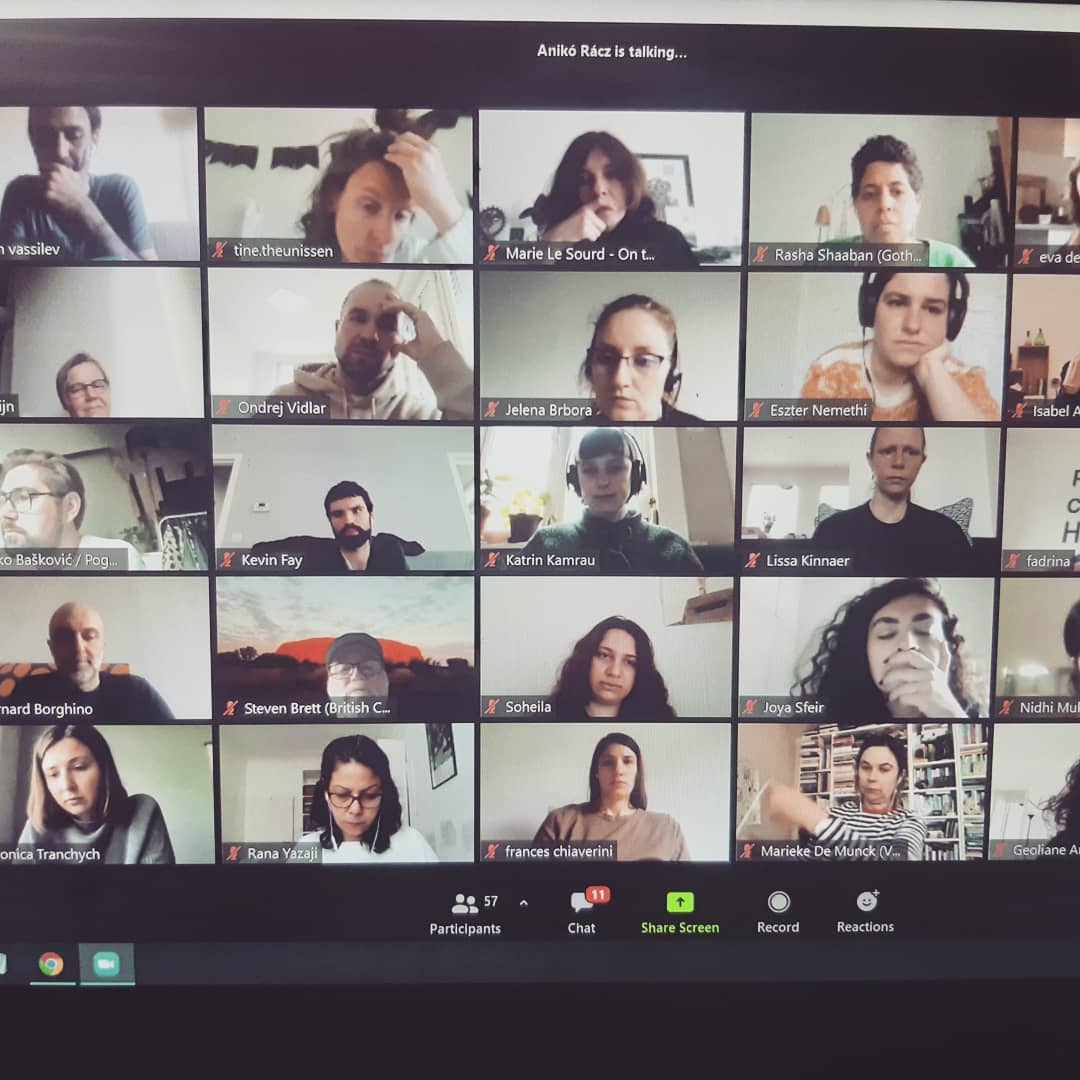Online workshop: more than fifty people had joined ‘The Gamified Workshop Toolkit’
Flanders Arts Institute, Ettijahat - Independent Culture and Pogon - Zagrebački centar za nezavisnu kulturu i mlade organized an online session of testing ‘The Gamified Workshop Toolkit: Values of Solidarity’ prototype. The prototype was developed by Anikó Rácz, Doreen Toutikian, and Dorota Ogrodzka, within the frame of the Solidarity Economies trajectory group. It was especially designed for teams that are just beginning their collaboration, primarily in the field of arts and culture, but also in other relevant sectors.
‘The Gamified Workshop Toolkit: Values of Solidarity’ has been created as a tool to promote collaborative communication and attitudes relating to the paradigm of solidarity . Its purpose is to give participants a chance to express what values are important to them in their collaboration, to understand how others think and what is important and necessary for them to work and communicate together. It also provides an opportunity to reflect on how the team wants to deal with possible conflict.
The online workshop was organized for cultural workers, activists and artists coming from different cultural and institutional backgrounds. In an open call, around eighty people applied, and around sixty participated in the workshop. After the opening words by the co-organizers, Dirk De Wit, Abdullah AlKafri and Anja Pletikosa, a small introduction of the Reshape project was been given by project’s manager, Milica Ilić. A short explanation of the prototype and it’s values, reasons and purposes was been given by Anikó, Dorota and Doreen afterwards.
Divided into ten breakout rooms, without a moderator, the participants tasted how the gamified process on solidarity communication and cultural management works. They went through all four steps of the game. Beginning with a set of values important to them, they dedicated most of the time to the conflict scenarios, their impacts and repercussions, as well as the possible solutions. At the end, each participant chose a value which would serve her or him as a guardian value for the project she or he is working on.
The final and general impression by the collaborations is that the prototype is highly applicable. Most of the participants stated that it would be useful to work with this prototype in the future - with their collaborators, within their organizations and in new projects.
Happy with what you’ve read? Send us more stuff like this!
